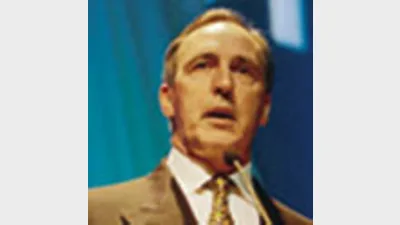Keating warns of tax impacts on super



Former Prime Minister Paul Keating believes that while the current focus on fees and costs within superannuation is valid, risks such as the removal of dividend imputation tax pose an even greater threat to superannuation account balances.
Speaking at the Count Financial annual conference in Adelaide, Keating acknowledged the debate and argument led by industry superannuation funds on fees and costs in superannuation is putting “real pressure” on the financial planning sector. But the former Prime Minister said while the current debate around lowering costs in superannuation is a real issue, “the more important debate is superannuation adequacy”. And emerging as a serious risk to superannuation returns is the potential that dividend imputation tax may be removed, with Keating saying this matter is now “truly under review”. Keating warned the “superannuation rate of return would drop dramatically if dividend imputation tax goes”.
It would be a “great pity for Australians” to lose this benefit, Keating said, while capital raisings by Australian companies would also suffer. A removal of dividend imputation tax would also reduce the pressure on Australian companies to be “dynamic sources of income”, while foreign investors would be the winners of an immediate tax windfall.Keating urged those with experience of the benefits of dividend imputation tax to express their views on the matter in writing to the Henry Tax Review.
Australia must now work towards rebuilding household balance sheets while also adding in aggregate ways to savings, Keating said. But unfortunately, in the current environment, “neither party is interested in raising super”.
While Keating has long campaigned for an increase in super guarantee (SG) contributions to 15 per cent, he yesterday said the vital bottom line Australia must reach is 12 per cent.
“It doesn’t have to go to 15 [per cent], but it does need to be 12,” he said.
Keating told the audience at the Count conference that when initially recommending SG payments of 15 per cent in the 1980s, he was thinking of the baby boomer generation, which would be looking to retire around 2010. Keating said in effect he was trying to “front-end load” the then-fledgling superannuation system for this generation.
But he also supported his initial target, saying that SG contributions of 15 per cent, if implemented at the time of his original recommendations, would now account for up to 3 per cent of the gross domestic product of the current account — which in today’s financial crisis would have provided the Australian economy with a significant level of support.
Keating maintains that the current SG level of 9 per cent is “inadequate”, saying that 12 per cent is the minimum amount that should be attributed to superannuation accounts.
Recommended for you
The Reserve Bank of Australia (RBA) has lowered rates to a level not seen since mid-2023.
Financial Services Minister Stephen Jones has shared further details on the second tranche of the Delivering Better Financial Outcomes reforms including modernising best interests duty and reforming Statements of Advice.
The Federal Court has found a company director guilty of operating unregistered managed investment schemes and carrying on a financial services business without holding an AFSL.
The Governance Institute has said ASIC’s governance arrangements are no longer “fit for purpose” in a time when financial markets are quickly innovating and cyber crime becomes a threat.










